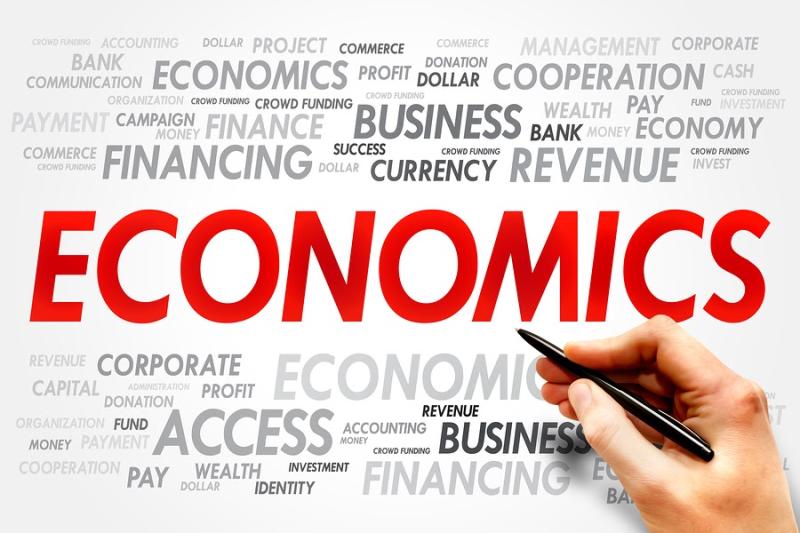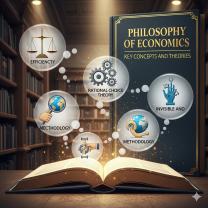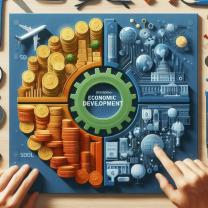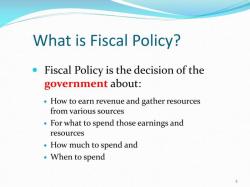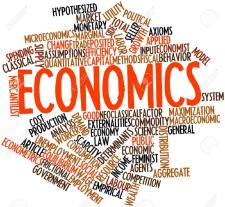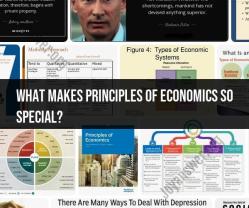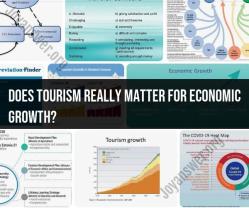What is the point of Economics?
Economics serves several purposes and has broad significance in understanding and addressing various aspects of human behavior, societal organization, and resource allocation. Here are some key points regarding the purpose of economics:
Allocation of Scarce Resources:
- One of the primary purposes of economics is to study how societies allocate scarce resources to satisfy unlimited wants and needs. It explores the choices individuals, businesses, and governments make to distribute resources efficiently.
Understanding Human Behavior:
- Economics examines how individuals and groups make decisions, considering factors such as incentives, preferences, and constraints. It provides insights into why people make certain choices and how those choices impact the allocation of resources.
Optimizing Utility and Well-Being:
- Economics aims to improve individuals' well-being by analyzing how they can maximize their utility, or satisfaction, given their limited resources. This involves studying consumption patterns, preferences, and the pursuit of happiness.
Guiding Public Policy:
- Economic analysis plays a crucial role in shaping public policy. Policymakers use economic principles to design effective strategies for managing inflation, unemployment, taxation, and other economic issues.
Resource Distribution and Efficiency:
- Economics helps societies achieve optimal resource distribution and efficiency. It examines how markets function to allocate resources based on supply and demand, promoting efficiency in the production and consumption of goods and services.
Studying Market Mechanisms:
- Economics explores the functioning of markets and the role of competition. It assesses how market forces influence prices, quantities, and the overall allocation of resources. Understanding market mechanisms is essential for economic policy and decision-making.
Analyzing Economic Systems:
- The study of economics involves analyzing different economic systems, such as market economies, command economies, and mixed economies. This exploration helps understand the strengths and weaknesses of various approaches to resource allocation.
Predicting and Managing Economic Fluctuations:
- Economies experience cycles of expansion and contraction. Economics provides tools for predicting and managing economic fluctuations, addressing issues like recessions, booms, and business cycles.
International Trade and Cooperation:
- Economics explores the benefits and challenges of international trade. It helps countries understand how to optimize their participation in the global economy and fosters cooperation among nations.
Addressing Societal Issues:
- Economics contributes to addressing social issues such as poverty, inequality, and environmental sustainability. It provides frameworks for evaluating policy interventions to tackle these challenges.
Continuous Learning and Adaptation:
- Economics is dynamic and evolves over time. It encourages continuous learning, adaptation to changing circumstances, and the development of new theories and models.
In summary, the purpose of economics is multifaceted, encompassing the study of human behavior, the efficient allocation of resources, the design of effective policies, and the improvement of overall societal well-being. By examining how individuals and societies make choices in the face of scarcity, economics provides valuable insights into the complexities of the modern world.
What is the fundamental purpose or objective of studying Economics?
The fundamental purpose or objective of studying economics can be viewed from different perspectives, highlighting its multifaceted nature:
Individual Level:
- Understanding Choice and Decision-making: Economics equips individuals with tools to analyze choices under conditions of scarcity, fostering rational decision-making in personal finances, career paths, and consumption patterns.
- Financial and Investment Literacy: Understanding economic principles enables individuals to make informed decisions about savings, investments, and managing personal finances in an efficient and informed manner.
- Critical Thinking and Analytical Skills: Studying economics develops critical thinking, analytical, and problem-solving skills that can be applied to various aspects of life beyond the purely economic.
Societal Level:
- Policy Analysis and Formulation: Economic knowledge underpins the design and evaluation of effective public policies aimed at achieving societal goals like economic growth, reducing poverty and inequality, promoting environmental sustainability, and ensuring efficient resource allocation.
- Understanding Economic Phenomena: Economics provides a framework for understanding complex economic phenomena like market fluctuations, business cycles, inflation, and unemployment, leading to informed public discourse and responsible decision-making.
- Promoting Efficiency and Well-being: By analyzing how resources are allocated and how individuals interact in an economy, economics aims to contribute to efficient resource utilization and overall societal well-being.
Global Level:
- Understanding Interconnectedness: Economics sheds light on the interconnectedness of the global economy, allowing individuals to recognize the impact of international trade, global events, and international policies on local economies and individual lives.
- Promoting Development and Prosperity: Economic theories and concepts are applied in developing countries to design solutions for poverty reduction, infrastructure development, and promoting sustainable economic growth.
- Addressing Global Challenges: Economic knowledge plays a crucial role in tackling global challenges like climate change, resource scarcity, and income inequality, informing international cooperation and solutions.
Ultimately, the objective of studying economics is not merely to accumulate knowledge about markets and theories. It's about empowering individuals with the tools and understanding to make informed decisions, contribute to efficient societies, and navigate the complexities of the globalized world. By applying economic principles to real-world problems and critically analyzing economic phenomena, individuals can participate in shaping a more prosperous and equitable future for themselves and others.
I hope this explanation provides a broader perspective on the fundamental purpose and objective of studying economics. Feel free to ask if you have any further questions or would like to explore specific aspects of this topic in more detail.
